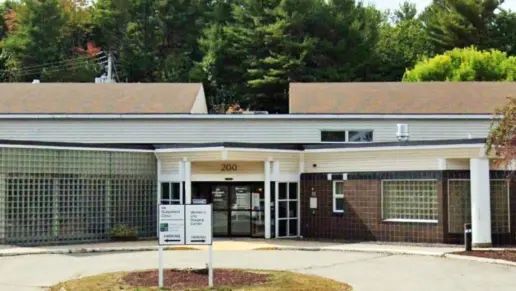They helped my family and me to succeed in life. Thank you for giving so much to our community. GOD BLESS YOU ALL!
About Families in Transition – Tirrell House – Closed
Families in Transition Tirrell House operated as recovery housing for men in Manchester, New Hampshire, but they have now closed. They offered housing options for low income families and had two emergency shelters for folks experiencing homelessness. A food pantry was available for those struggling with food insecurity too. They offered sliding scale payment and adjusted fees based on income and family size.
Transitional Housing for Men
Sober living homes offered transitional housing for a safe and supportive environment during the early part of recovery. Treatment was provided in a gender specific substance free setting and peer support programs helped people overcome obstacles and live a healthy and fulfilling life.
Recovery housing was offered alongside outpatient recovery services and substance use treatment. Aftercare support continued treatment to help maintain long term sobriety.
Three Levels of Support
They offered three levels of care based on evidence based practices to support recovery and overall wellbeing while helping to remove barriers to treatment. Residential care helped focus on recovery without distractions.
The next step down was intensive outpatient services which included therapy and case management, and let you maintain everyday responsibilities like parenting and work. Standard outpatient services helped build skills that support a healthier lifestyle and understanding of the impact of substance use and trauma.
Reset Between Sessions
Manchester sits on the Merrimack River in the heart of New England. Enjoy time outdoors at Derryfield Park or Livingston Park, which offer walking trails and recreational areas. The Currier Museum of Art is nearby and offers cultural enrichment. Breaks in treatment can be spent reconnecting with surroundings to help reduce stress and improve feelings of well being.
Latest Reviews
Rehab Score
Gallery
Other Forms of Payment
Self-pay involves paying for treatment out of your own pocket. You can use savings or credit, get a personal loan, or receive help from family and friends to fund your treatment. If you don't have insurance or your insurance plan doesn't cover a specific program, self-pay can help ensure you still get the care you need.
Sliding scale payments are based on a client's income and family size. The goal is to make treatment affordable to everyone. By taking these factors into account, addiction recovery care providers help ensure that your treatment does not become a financial burden to you or your family, eliminating one barrier to care.
Addiction Treatments
Levels of Care
 Outpatient
Outpatient
 Intensive Outpatient
Intensive Outpatient
 Inpatient
Inpatient
 Sober Living Homes
Sober Living Homes
 12-Step
12-Step
 Aftercare Support
Aftercare Support
Treatments
The goal of treatment for alcoholism is abstinence. Those with poor social support, poor motivation, or psychiatric disorders tend to relapse within a few years of treatment. For these people, success is measured by longer periods of abstinence, reduced use of alcohol, better health, and improved social functioning. Recovery and Maintenance are usually based on 12 step programs and AA meetings.
Treatment provided at drug rehab in New Hampshire prepares individuals to handle life stressors without using substances. Participants get the tools and support they need to maintain lifelong recovery.
Opioid rehabs specialize in supporting those recovering from opioid addiction. They treat those suffering from addiction to illegal opioids like heroin, as well as prescription drugs like oxycodone. These centers typically combine both physical as well as mental and emotional support to help stop addiction. Physical support often includes medical detox and subsequent medical support (including medication), and mental support includes in-depth therapy to address the underlying causes of addiction.
Substance rehabs focus on helping individuals recover from substance abuse, including alcohol and drug addiction (both illegal and prescription drugs). They often include the opportunity to engage in both individual as well as group therapy.
Programs

Adult Program

Young Adult Program
Clinical Services
Experiential therapy is a form of therapy in which clients are encouraged to surface and work through subconscious issues by engaging in real-time experiences. Experiential therapy departs from traditional talk therapy by involving the body, and having clients engage in activities, movements, and physical and emotional expression. This can involve role-play or using props (which can include other people). Experiential therapy can help people process trauma, memories, and emotion quickly, deeply, and in a lasting fashion, leading to substantial and impactful healing.
Group therapy is any therapeutic work that happens in a group (not one-on-one). There are a number of different group therapy modalities, including support groups, experiential therapy, psycho-education, and more. Group therapy involves treatment as well as processing interaction between group members.
In individual therapy, a patient meets one-on-one with a trained psychologist or counselor. Therapy is a pivotal part of effective substance abuse treatment, as it often covers root causes of addiction, including challenges faced by the patient in their social, family, and work/school life.
Life skills trainings involve all the skills a person must have in order to function successfully in the world. These include time management, career guidance, money management, and effective communication. Truly successful addiction recovery is based on the ability to not only live substance-free, but to thrive. Life skills teaches the practical necessities of functioning in society, which sets clients up for success in life, and therefore sobriety.
Trauma therapy addresses traumatic incidents from a client's past that are likely affecting their present-day experience. Trauma is often one of the primary triggers and potential causes of addiction, and can stem from child sexual abuse, domestic violence, having a parent with a mental illness, losing one or both parents at a young age, teenage or adult sexual assault, or any number of other factors. The purpose of trauma therapy is to allow a patient to process trauma and move through and past it, with the help of trained and compassionate mental health professionals.
Staff
Maria Devlin
President & CEO
Daniel Kern
CFO
Kerry Pellerin
COO
Meghan Shea
Chief Programs Officer
Lauren Bombardier
Director of Development
Erica Diamond
Director of Contract Compliance
Brandyn Dionne
Controller
Tyler Huff
Director of Facilities





